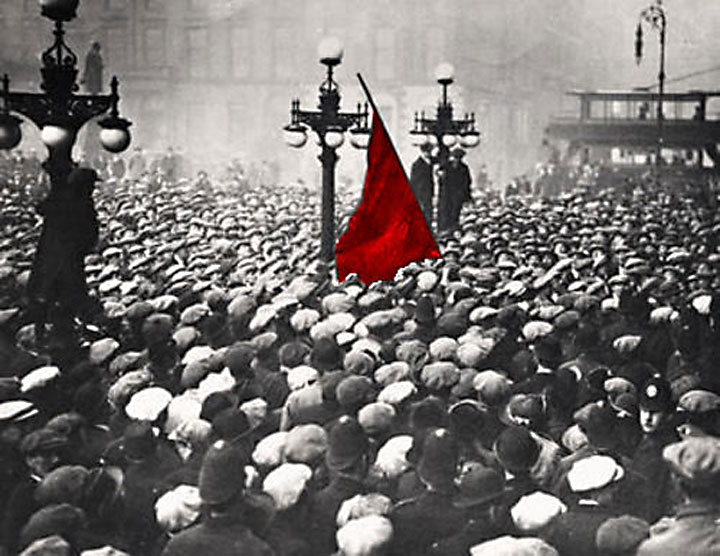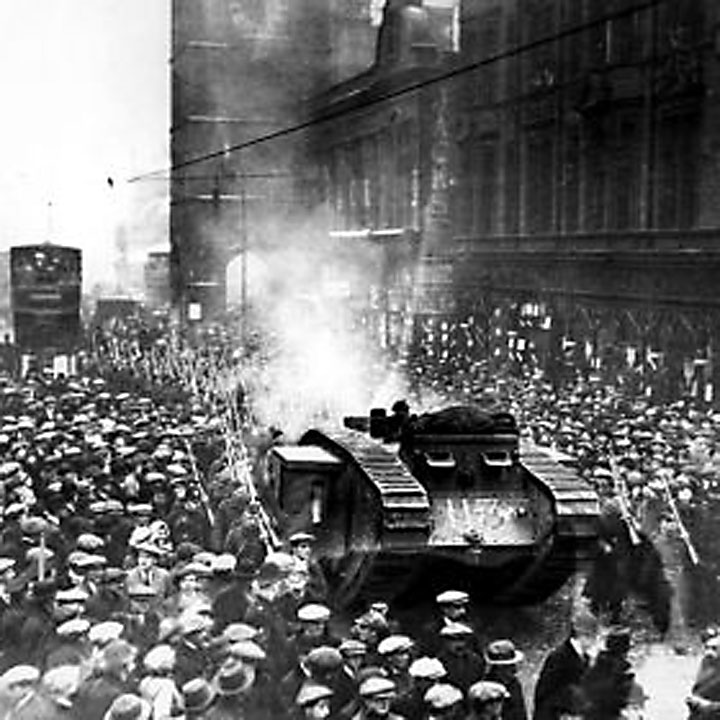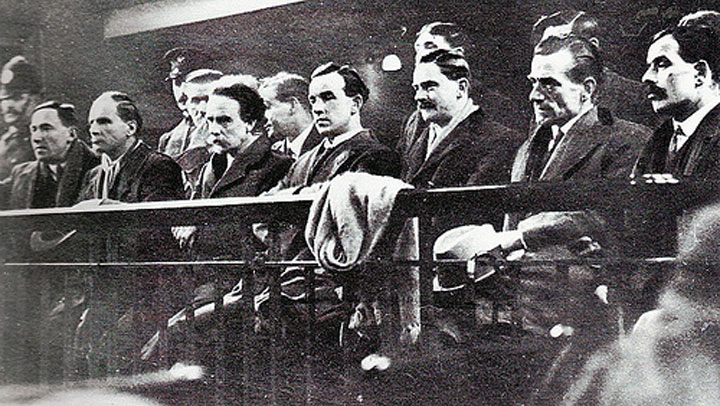 I live in Glasgow, Scotland, where I “discovered” John Steinbeck relatively late in life. It wasn’t until I was in my 30s that I sat down and actually read one of his books, my introduction being—as for generations of readers before me—The Grapes of Wrath. From then on I was hooked on Steinbeck, a writer with Scots-Irish roots that I believe are evident throughout his life and work.
I live in Glasgow, Scotland, where I “discovered” John Steinbeck relatively late in life. It wasn’t until I was in my 30s that I sat down and actually read one of his books, my introduction being—as for generations of readers before me—The Grapes of Wrath. From then on I was hooked on Steinbeck, a writer with Scots-Irish roots that I believe are evident throughout his life and work.
Workers’ Rights in Glasgow, Scotland, and in Steinbeck
After moving from The Grapes of Wrath to other works by Steinbeck, I was struck by the parallels between Steinbeck’s themes and the Scottish nature, as well as by hints of Scotland’s strong radical working class tradition in Steinbeck characters who display distinctly Scottish traits. Among the most memorable are Tom Joad in The Grapes of Wrath, Jim Nolan—the protagonist of In Dubious Battle—and the young labour organizer who takes a beating in “The Raid.” In their willingness to sacrifice themselves for the good of their social cause, these protagonists clearly reflect the qualities of John Maclean and the Red Clydesiders of early 20th century Glasgow, Scotland.
The accompanying photographs illustrate my point. Two were taken in 1919 at a rally attended by an estimated 90,000 men and women in Glasgow, Scotland, demonstrating their support of the campaign for a shorter working week and better conditions for workers. Unfortunately the police panicked and officials sent in tanks and soldiers to the city centre, fearing that the protests would lead to revolution and resulting in the Battle for George Square. The first image shows crowd members raising the red flag, the second Government tanks on the streets. The third records the trial of the Red Clydesiders.
 Keeping The Grapes of Wrath Fresh Beyond School
Keeping The Grapes of Wrath Fresh Beyond School
As far as I am aware, no in-depth study exists of the Scottish links that became so apparent to me in my reading of Steinbeck. One thing that I think prevents many young people from appreciating Steinbeck’s work in Scotland is that he is required reading in many schools. Being forced to read something in the school environment is not, in my opinion, conducive to personal enjoyment.
I speak from experience. Almost 25 years after leaving school, I am still reluctant to get better acquainted with the works of Shakespeare! Not that Steinbeck or Shakespeare shouldn’t be taught in schools. To the contrary, I think both writers ought to be required reading. The question is whether the teacher’s enthusiasm becomes contagious, inspiring students to continue reading beyond the required introduction and the boundaries of the classroom.
Lessons from a Glasgow, Scotland, Bookstore
I am not alone in this belief. While browsing in a bookshop for Steinbeck titles after finishing The Grapes of Wrath, I got to speaking to with a store assistant. She had been put off from delving further into Steinbeck by being forced to read Of Mice and Men in school. Reversing the usual customer-advisor role relationship, I spent the next few minutes convincing her of Steinbeck’s artistic merit and persuading her to give him another chance! I bought The Winter of Our Discontent that day but haven’t been back to the bookstore to ask if she did. Meanwhile I’ve almost persuaded myself to give Shakespeare a second try.
Shakespeare may be English, but Steinbeck was Northern Irish on his mother’s side. Her family name of Hamilton is Scottish in origin, and seems likely that her ancestors arrived in Northern Ireland from Scotland sometime during the 18th century. Less certain is whether the spirit of John Maclean and the Red Clydesiders—or earlier Scottish movements like the Radicals of the 1820s—directly influenced Steinbeck’s fiction. What is undeniable, however, is the writer’s interest in Scottish affairs.
 From Robert Burns to The Grapes of Wrath
From Robert Burns to The Grapes of Wrath
Steinbeck’s February 1964 letter to Jacqueline Kennedy suggests the author’s sense of attachment to the homeland of his Hamilton ancestors and his familiarity with its history: “You talked of Scotland as a lost cause and that is not true. Scotland is an unwon cause.” Speaking in the spirit of Steinbeck’s statement, Alex Salmond, the First Minister of Scotland, noted that “every society is an unwon cause – the struggle for fairness, equality, tolerance, rights of free speech and thought – these are struggles which are never won – they require constant vigilance and courage.”
But Steinbeck’s books also show Scottish influence. His appropriation of the Scottish poet Robert Burns for the title of his novel Of Mice and Men conveys Steinbeck’s theme, along with a connection to Scottish populism. Like Steinbeck’s novel, Burns’ short poem “To A Mouse” reflects both compassion for humanity and uncertainty about the future. Ma Joad, the strong maternal figure in The Grapes of Wrath, is a recognizably Scottish type. Such women became a feature of the working class during the 1920s and 30s, particularly in the mining communities around Glasgow, Scotland, where large numbers of working men were flung onto the unemployment scrapheap, requiring wives and mothers to hold households together through the crisis that followed.
Support for My Steinbeck Journey in Search of Scotland
In the coming months, I would like to explore the similarities between the thinking of John Steinbeck and what I see as the Scots experience, building the case for the influence of Scottish history and values in the writer’s fiction. If I can find the necessary financial support, I will also gauge the mood of modern Scotland as the Scots people decide whether to reclaim their national independence. In September 2014, a general referendum will determine whether Scotland will become an independent nation or remain part of the United Kingdom. (Perhaps not coincidentally, Glasgow, Scotland, will host Britain’s Commonwealth Olympics in 2014.)
In 1960, Steinbeck set out across the United States to learn more about his country at the beginning of a the last decade of his life. For my part, I would like to learn more about my country as we approach a crucial point in the evolution of our identity, and to discover whether the Scottish traits I recognise in Steinbeck’s characters survive in the land of my birth. Are the Scots people up to the challenge of creating a fairer society? Are Tom Joad, Jim Casy, and Jim Nolan still to be found among the two-million-person population of Greater Glasgow, Scotland, and other parts of my country? It’s an ambitious but timely project—one that I look forward to beginning once I’ve identified private sponsorship or public financial support for my Steinbeck-Scotland journey.

